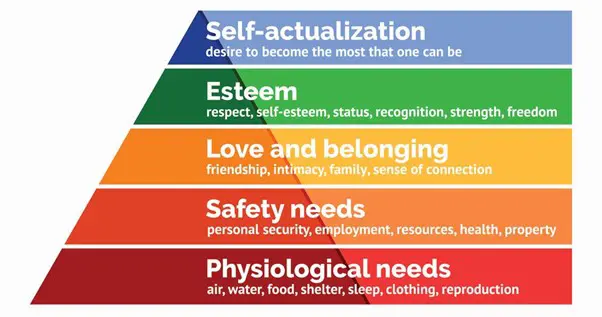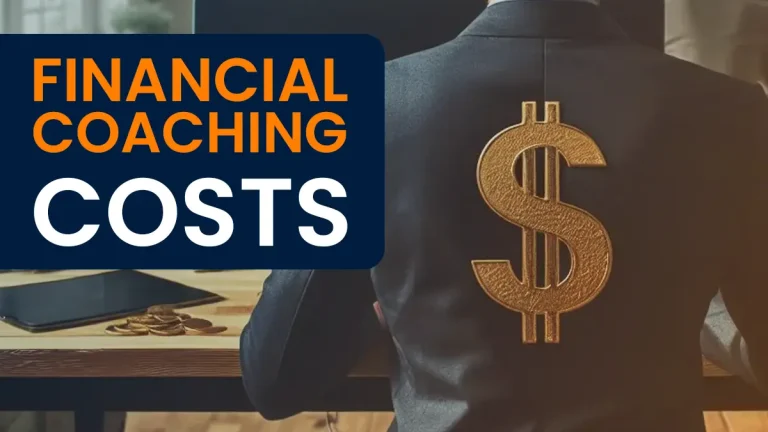Die With Zero – my life philosophy
I was recently featured in a Fortune magazine article explaining my reasoning for wanting to ‘Die With Zero’. That is, wanting to die having just spent my last dollar.
I thought I would put together a guide and explain my reasoning for such a strange goal.
This lifestyle is about having your cake and eating it too. There’s a ton of appeal, at least once you get over the fear of dying destitute.
Your initial reaction to this idea is probably the same one I had. You’ll be dismissive of it as a ludicrous & financially irresponsible idea. But once you understand the rationale, you’ll hopefully realize that any other way of living is in fact ludicrous!
In a sentence, here’s why: most wealthy people work their entire lives in a job they hate, working for people they do not like, to earn money that they never spend. It is one of the saddest realities of our society.
There is a way to enjoy your life today AND have a secure financial future. There is a way to spend money on all the amazing experiences life has to offer AND support your children, grandchildren, and nieces and nephews.
Let’s dive in!
Die With Zero summary – what is the Bill Perkins book about?

The ‘Die With Zero’, philosophy comes from a book by Bill Perkins. Bill is a hedge fund manager turned author, and his book can be broken down into three core ideas:
- Aim to have $0 left in your bank account when you die. Imagine dying with $50,000 in your bank account, after you have taken care of all your family. That is close to the average annual salary in the US. Why would you work an entire year of your life, simply not to spend it? Think about all the amazing things you could have bought or done with that amount of money.
- Money is a tool for living a fulfilling life – not an end in itself. GET OFF AUTOPILOT, stop mindlessly accumulating money for ‘someday’ or ‘something’ and be deliberate with the tool that is money. What are you earning this for?
- Invest in experiences when you’re young, to get compounding returns on your memories. I still regularly think about our trip to Thailand – the people we met, the food we ate, the experiences we had – 10 years after it happened. It brings me endless joy. It introduced me to Thai food which I cook regularly. It introduced me to new friends that I’m still in touch with. It introduced me to scuba diving, which I am now certified in. Invest in yourself today, it pays dividends – memory dividends as Bill calls it.
Why I like the Die With Zero philosophy

Three of the key tenets of the movement and why they align with me include:
- My partner and I are experience junkies and not at all materialistic. Material goods like cars often require various ongoing payments, which can keep you trapped in the rat race. Experiences are usually one-offs and more manageable, plus they enrich your life. They make you more tolerant, expand your horizons and help you grow as a person. This is a key part of philosophy, and why it resonates with me.
- My partner and I don’t want kids, but we do have nieces and nephews. I don’t intend to give away all money on my death, I want to enrich their lives while I’m alive. This is a key point, as I’ve been accused of being ‘selfish’ for following die with zero. On the contrary, it allows me to be generous while I’m alive!
That means contributing to a 529 plan for their education, investing money on their behalf and giving it to them on their 18th birthday, helping them get their first car and so on.
Essentially, providing them with the tools to make their life fulfilling, without spoiling them! That means teaching them the value of money, how to handle money, frugality, saving and investing for the future.
Think about it this way. Why do we give people gifts? One of the main reasons is so that we can see their faces light up as they open them. It’s the best feeling.
Why would you want to give the largest gift you’ll ever give someone when you’re dead? You don’t even get the satisfaction!
By the way – if you wait till after your death to try and give them a lump sum instead of drip feeding them gifts over your life, most of that money will go to the government upon your death. Don’t work ALL life just to give it to Uncle Sam, this is an even sadder reality.
- As a financial coach, I’m constantly thinking about my own balance of investing for the future, vs. enjoying my life today. Bill advocates for not worrying too much about the distant future, and it’s a reminder that I sometimes sorely need. Most financial experts preach the virtues of frugality only.
Die With Zero Calculator
Use the below calculator to estimate your monthly expenditure that will leave you with $0.01 in the bank upon your death, based on your current savings.
Not sure when you are going to die? It’s probably around 86, so go with that. What if you live longer? We discuss that further below!
Die with zero Calculator — calculate savings and expenditure to die with zero
This calculator easily answers the question "Given the value of my current investments how much do I need to spend each month to ensure I die with close to zero?"
The user enters their "Current Age", their expected "Age of Death", the "Annual Interest Rate (ROI)" (annualized Return on Investment one expects to earn) and "Amount Desired At Death" (1 cent).
The calculator quickly calculates the required monthly expenditure to reach close to zero.
Currency and Date Conventions
All calculators will remember your choice. You may also change it at any time.
Clicking "Save changes" will cause the calculator to reload. Your edits will be lost.
Die With Zero criticism & flaws of the philosophy
There is plenty of criticism of this ideology. Let’s discuss them now.
“We don’t know when we are going to die”
Actually, we pretty much do.
Whilst we do not have an exact age, all our lives come to an end around the same time, if we are fortunate enough. Those that reach retirement age will roughly die around age 86 according to current estimates. Knowing this, we can tailor our lives accordingly.
“But what if I live longer?”
True, you might live till your 96. But your expenditure at 96 will not be the same as your expenditure earlier in life. The day before you die, you’re not going to be going on safaris, going skiing, or renting a yacht.
Even if you’re relatively healthy in your 90’s, there simply aren’t many grandma’s racing supercars. They’re living peaceful but fulfilling lives – and not necessarily for a lack of money.
At that point in life, your expenditure will simply be much more modest. You can also flex your expenditure, as we discuss further below.
“I don’t have the money to live my life how I want, my bank account is already $0”
This is a philosophy on how to allocate your money, not how to earn it. I totally appreciate this is not a useful ideology if you currently have no disposable income.
As Bill himself says, “People in poverty are probably already doing all they can to get the most out of their money and their life.”
Maslow’s hierarchy of needs dictates that you must first spend your money on basic necessities (food, water, shelter) before you can progress up the pyramid to more rewarding and fulfilling life experiences.

Work out how much you need for basic survival. A roof over your head, food and water. Everything else after that is for experiences.
“I’m scared of running out of money”
Firstly, you should be more scared of dying before you have had a chance to lead a fulfilling life. This, I wish, was more obvious to most people.
When someone has a terminal illness, their priorities change to pursuing life experiences. They know when they are going to die, and they of course want to fit in as much as possible. It is a mindset shift.
I believe it is a good mindset for all of us. Life is fragile, do not wait for ‘someday’ – it may never come.
If you are still scared of running out of money, as above, know that your expenditure will be much lower in your later years when your health is declining.
Your expenditure should peak around the time you have peak health & energy, and your net worth should peak too as you invest in experiences.
As James’ graphic below shows, you want to bring forward your life experiences to earlier in life while still in good health. This extends the time you can enjoy your life. Sure, it decreases your overall wealth potential, but we’re aiming to die with zero here!

If you are truly worried about running out of money in retirement, you can abide by the ‘4% rule’. That is, you only draw down 4% of your wealth per year from the year of my retirement. Studies have shown that you are unlikely to go broke before death, by following this strategy.
Nowadays, most people promote being flexible with this rule. In times of recession, you might want to scale back spending to 3%. As the years go on, you should be fine to increase your spending as you pursue dying with zero.
“What about the kids, nieces and nephews?”
As mentioned above, it is a far more rewarding (and tax-efficient) to give your family money while you are still alive. Moreover, they will receive the money when they need it the most; in the early stages of life when they have nothing.
Inheritance money is far less useful in your 50’s and 60’s – most people are already set in life by this stage. Getting a leg up in your 20’s and 30’s has a far more drastic long-term impact on a person’s life.
But if you’re determined to leave it in your will, for some odd reason, simply keep their money in a separate pot. That pot can stay invested, and ‘your’ money is what will go to zero.
“But I need to scrimp and save every penny I have in my 20’s and 30’s”
Bill argues that you really don’t have to.
Your earning potential, and therefore your disposable income and amount you can save & invest, increases dramatically as you age. You don’t need to sacrifice your youth too much, too early.
I believe creating a good saving and investing habit in these years is good, though. Even if it’s a small percentage of your salary. So, I’m only half on Bill’s side here.
What I do agree with though, is that money means a lot more to you in your 20’s and 30’s than it does in your later years.
$20 for a meal is a lot of money for a young adult but is completely taken for granted as an older adult who is financially secure. Because of this, the young adult appreciates the meal much more, whereas the older adult takes the meal for granted and accordingly, derives less happiness from it.
To not enjoy that meal now as a 20-year-old, means you are simply handing the $20 to your older self, who may barely notice $20 disappearing from their account. It’s illogical.
Your relative enjoyment of $20 is larger when you’re younger. Your future self won’t miss it.
“Great! I get to spend frivolously and die with nothing!”
For some people reading this, they will see it as a green light to go wild in their 20’s and 30’s. They’ll plan to spend it all, because they now plan to die with nothing in their bank account anyway – life is about living!
But that is not the case. You still want to retire someday, right? You still want to do things that are enjoyable in retirement, support your family and maybe even retire from the 9-5 early?
Die with zero encourages you to enjoy your life, indeed even more so whilst you’re young and have the energy and desire to do so. But trust us, you still need to save and invest for the future, otherwise your later years will be decidedly unenjoyable.
You can strive to become financially independent AND enjoy your life at the same time.
So why do some people NOT want to Die With Zero?
There are many reasons that people lust endlessly after money, or fear losing it.
- They grew up poor and fear the thought of returning to that state, even in death!
- Most people don’t prioritize their retirement savings or becoming wealthy until they are in their 50s and have a sudden realization they can’t work forever. They only reach financial independence late and want to hold onto it for as long as possible.
- They see wealth and riches in the media. They see that Billionaires like Warren Buffett (age 92,) are still working for money and want to emulate their ‘success’. Bill does not envy such an existence.
Warren Buffett made 99% of his wealth after his 50th birthday. He made his first billion at 56 years old and has kept working for the next 36 years to make another $118.5bn.
I love Warren, and this is obviously impressive, but arguably an incredible waste. To spend his last 36 years as a billionaire analyzing financial statements instead of doing literally anything else seems ludicrous to me.
You don’t have to make a billion to fall into Warren’s trap. You might have $500,000 at 56 years old if you’re lucky. For many people, using the 4% draw down rule, that is enough to never work again and live a perfectly comfortable life. Will you keep on working, even when you don’t need to? If so, why?
Summary: Die With Zero is a wake-up call, not a new cult
This is not about telling you how to live your life. It’s about getting off auto-pilot earning money from your 9-5 and not planning what it is precisely for.
Think consciously about what experiences you want to have in the next 5 years. 5 years is 10% of your working, healthy, adult life (18-68). Time is your most precious resource.
What do you want to accomplish in your 20’s, your 30’s, your 60’s? The goals in each decade are going to be different, you have a limited time to achieve them. You likely won’t be going to many illegal raves in your 60’s, and you likely won’t be hiring out many yachts in your 20’s.
Ultimately, it boggles my mind that people hoard billions of dollars in wealth and die barely spending more than a few percent of it. Instead, they often leave it to ungrateful heirs.
I’m determined to become independently wealthy through investing, but not to an excessive degree of dying rich. I’m very much determined to live my life, too.
You can get a copy of ‘Die With Zero’ by Bill Perkins here.





